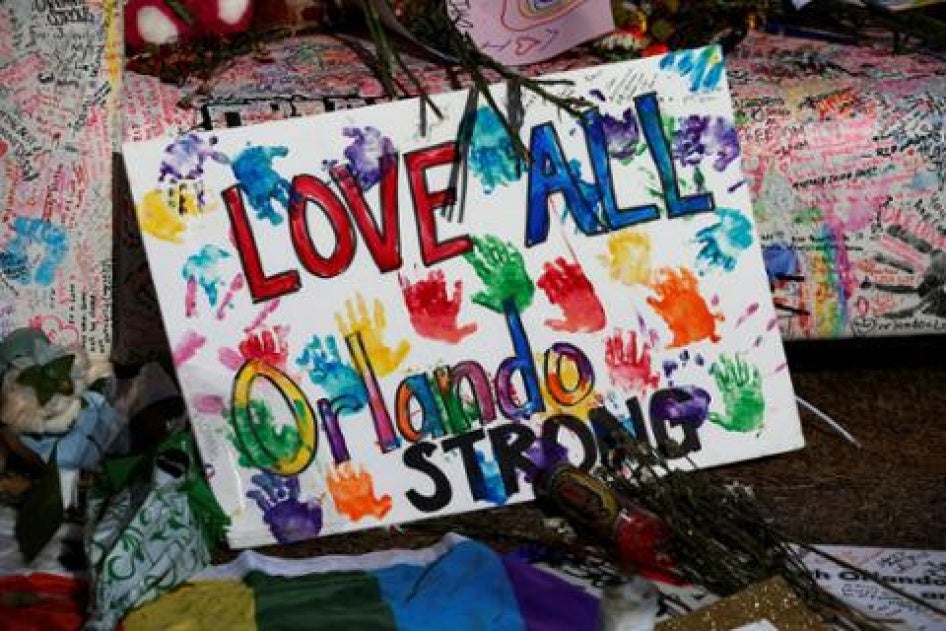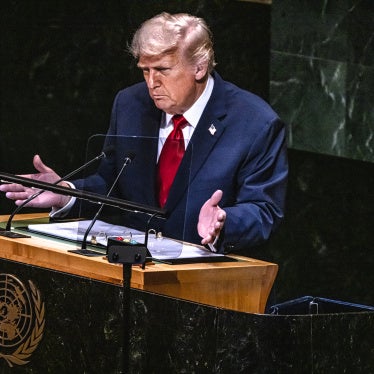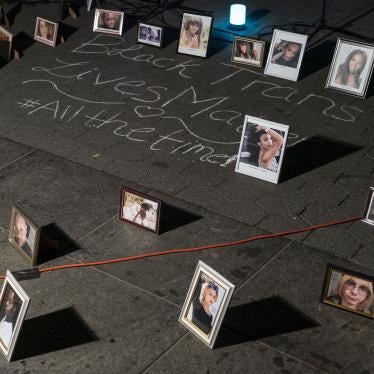Those in the US who have condemned the violence include politicians who frequently express disdain for LGBT people, fighting anti-discrimination legislation tooth and nail, relegating transgender children to bathrooms where they are unsafe, and describing homosexuality as "aberrant" and "sinful."
Outside the US, countries such as Egypt and Saudi Arabia have also issued condemnations. But at home, Egyptian police busy themselves arresting and entrapping gay men and subjecting them to agonising anal examinations, while Saudi Arabia regularly sanctions people suspected of committing homosexual or other "immoral" acts, often sentencing them to flogging. Saudi prosecutors recently announced that they would consider seeking the death penalty for those "using social media to solicit homosexual acts."
The statements condemning the attack in Orlando remind us of our common humanity. But if politicians and governments limit themselves to rhetoric while refusing to take concrete steps to end homophobic violence, they are letting extremism win.
No one publicly agrees with Mateen – but anti-LGBT violence occurs everywhere, and condemnation alone will not stop it.
In recent months, we have mourned the murders of prominent activists Rene Martinez in Honduras and Xulhaz Mannan in Bangladesh. More than 100 transgender and gender non-conforming people have been reported murdered around the world in 2016, at least 13 of them in the US.
All governments have the responsibility to consider how their laws, policies, or discourse might encourage this kind of violence.
Countries that criminalise same-sex relations should start by eliminating those laws or at least ceasing to enforce them, so that LGBT people who are crime victims can report the attacks to the police without fear of being arrested.
In countries with progressive laws but high levels of homophobic and transphobic violence, such as South Africaand Brazil, the authorities need to do more to track hate crimes and ensure that victims do not face stigma or discrimination at police stations.
In the US, addressing hate crimes might mean enacting comprehensive non-discrimination legislation; investigating the extraordinary levels of violence facing marginalised sectors of the LGBT population such as trans women of colour and sex workers; and taking far more serious government action to protect people against gun-related violence.
Globally, all countries that purport to deplore the Orlando massacre should support initiatives to combat violence based on sexual orientation and gender identity.
This month, six Latin American countries will propose a resolution at the UN Human Rights Council to establish an independent expert on sexual orientation and gender identity, whose mandate would include documenting anti-LGBT violence and discrimination and working with governments to develop strategies to address it.
For governments that have previously rejected such initiatives at the UN, Orlando should serve as a reminder that such reforms are sorely needed. They should consider a "yes" vote or at least abstain rather than blocking efforts to address violence. It would be naïve to believe that any of these actions will eliminate homophobic and transphobic violence. But collectively, the governments and leaders around the world should stop the "other-ising" of LGBT people that helps fuel violence.
We cannot pigeonhole Orlando as an "Islamic" problem or an "ISIS" problem, as some Western media would have it.
The massacre may have links to religious extremism – but at its core it was also a deliberate attack against LGBT people. Until all governments take meaningful steps to address anti-LGBT violence, no government, region, religion or culture should consider itself off the hook.







